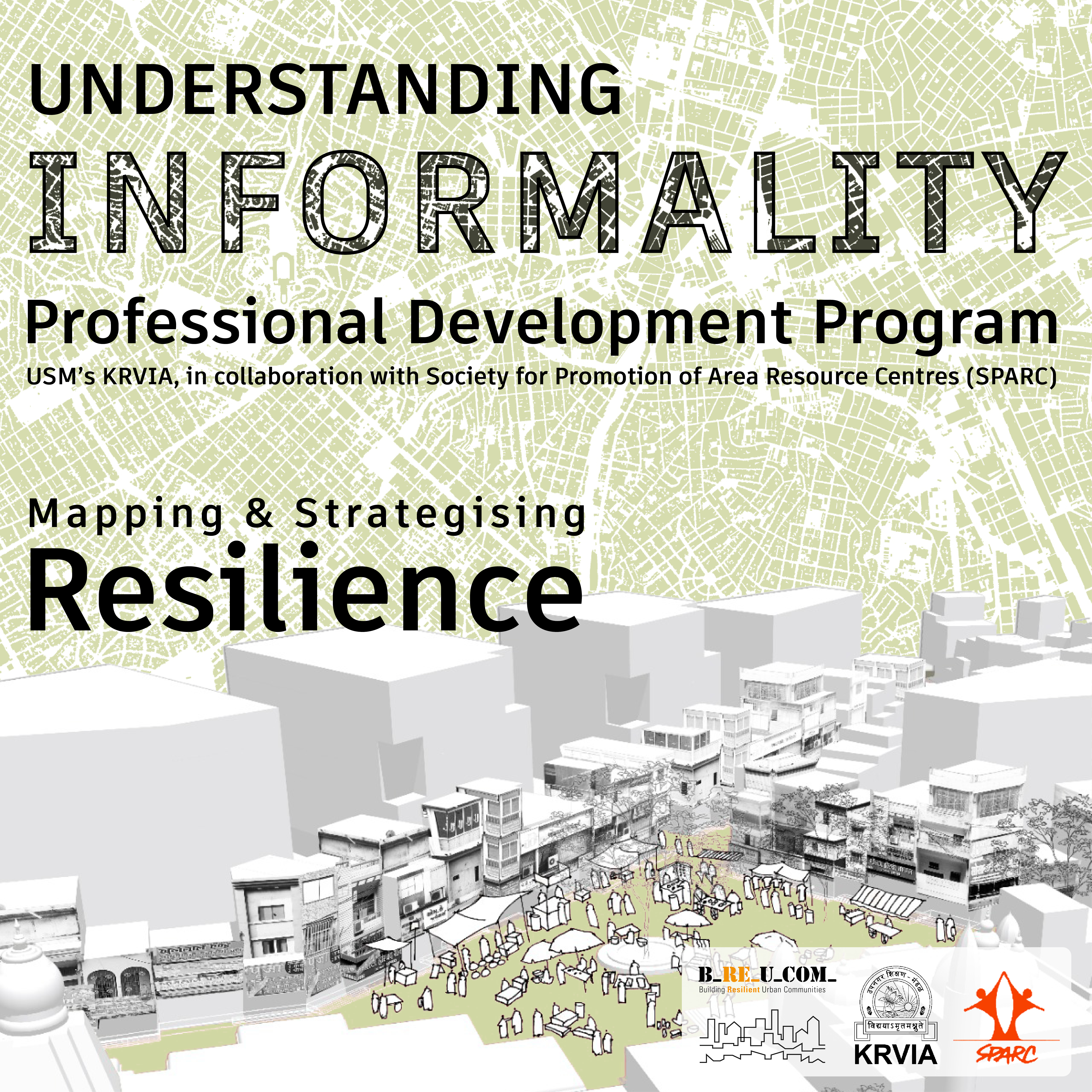Understanding Informality: Mapping & Strategizing Resilience
Course Name: Understanding Informality: Mapping & Strategizing Resilience
OCW type: PDP
Higher Education Institution: Kamla Raheja Vidyanidhi Institute for Architecture and Environmental Studies (KRVIA), Mumbai

Description of course
Aim:
Urban challenges are diverse, and they exist in different forms and with different severity across the world (Schneider 2002). Among other urban challenges, the issue of urban informality and its infrastructure is significant, and has a profound impact on slums dwellers and liveability index.
Urban informality is an interdisciplinary concept, and it often refers to issues such as the informal sector, the informal economy, informal settlements and squatter settlements, to name just a few. Urban informality can be broadly defined as the living condition (settlement, economic, commercial, and physical conditions) of urban dwellers and their activities that are non-regularised and non-taxed and are often characterised by different challenges.
The professional development program deals with the dissemination of knowledge related to urban informality and its central and peripheral issues, with respect to risk and resilience.
Course Objectives: The course shall disseminate conceptual frameworks on understanding informality through various case studies. It shall also enable participants to develop their own frameworks to study the implications of informality in the urban context.
Learning Outcomes: Conceptual frameworks that engage with informality and resilience, holistic strategies to work with informality and development of frameworks for the same.
Course Structure
Course Duration: 25 Hours (spread over 3 day sessions)
Course Frequency: Every Year
Course Format: Lectures + Workshop.
Course Content
Prerequisites for participation:
The participants with a Bachelors degree in Architecture. Participants enrolled in Postgraduate programs in Architecture, Urban Design, Urban Planning, Conservation, or related fields will be given priority. Other applicants with a keen interest in Urban Studies can also apply.
Course Syllabus:
Lectures:
- Can we transform planning to befit the 21st century?
- The Resilience of Informal Typo-morphologies
- Local Area Planning for Informal Settlement Upgradation: An Approach
- Mapping and Representing Informality: Case of Gazdhar Bandh
- Governance + Informality = Divided City
- Project Dharavi: An Inventory of Processes
Workshop:
Mapping Informality: Strategizing Resilience
The participants shall work together with the mentors, to conceptualize the investigative and mapping process of various forms of informality and strategize on building resilience in the given situations, in selected sites, across the country.
Course Assignments: Presentation by participants on the third day after will work closely with two-three mentors per group, to conceptualize the mapping process of various forms of informality and strategize on building resilience in the given situations, in selected sites, across the country.
Expected time spent on course:
Time spent in hours: 2 Lecture days - 3 hours each, Workshop day – 1 hour of brainstorming with mentors (3 teams) with 6 hours of team work on presentations.
Time spent in ECTS (European Credit Transfer and Accumulation System): < 1 ECTS = 25 hours >
Course Grading
Assessment Criteria and Distribution of Marks:
|
Stages & Details |
Percentage of Total Marks |
|
Presentation by participants on third day |
100 |
|
Total |
100% |
Course Evaluation
Evaluation Procedure & Criteria:
Deans and Academic advisors evaluate and comment upon the PDP structure before the course in conducted. After the PDP, participant evaluation feedback analysis obtained through the feedback forms is made available to the PDP team.
Faculty Evaluation:
Interaction during the presentation by the mentors.
Student Evaluation:
Standard format by way of a questionnaire is available for the students to suggest their learnings as well as areas in which the course can improve.